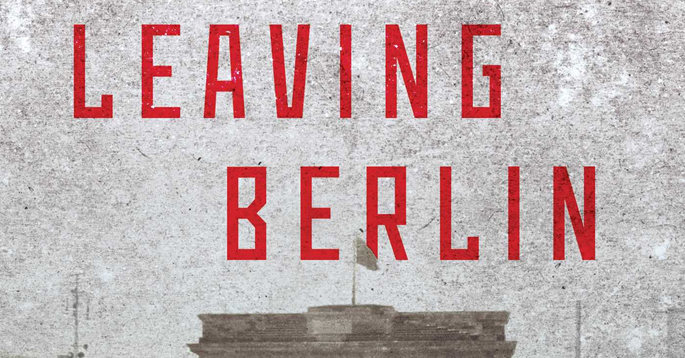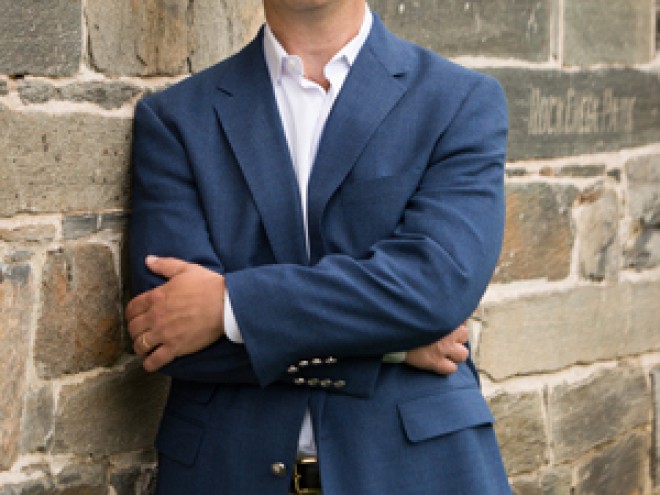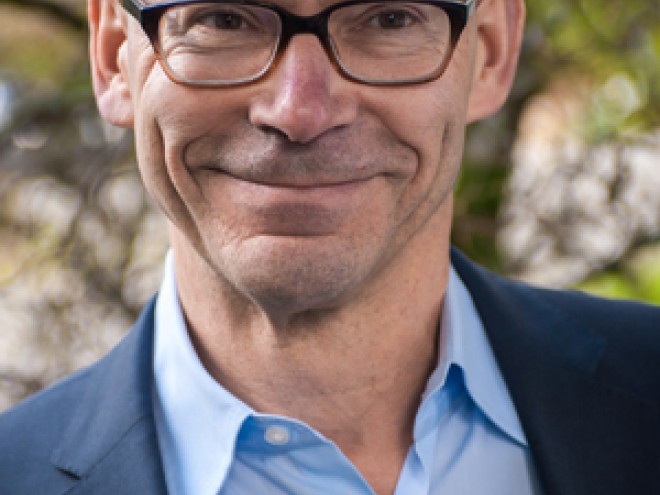Leaving Berlin by Joseph Kanon is a gripping historical thriller. The book’s plot takes place in Berlin four years after the end of World War II. Through an action-packed plot, readers get a glimpse of the start of the Cold War, when Stalinists replaced the Nazis. This fast-paced novel brings to life postwar Berlin, a city caught between the past atrocities of the Nazis and the harsh realities of the Soviet occupation.
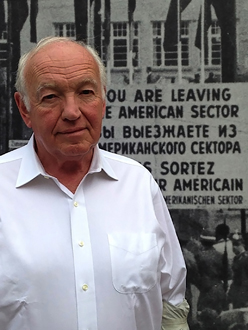 Elise Cooper: Are planning a sequel to Leaving Berlin?
Elise Cooper: Are planning a sequel to Leaving Berlin?
Joseph Kanon: I never write sequels to any of my books. When they end for me they end for me. It ended where it’s supposed to end, at least in my head.
EC: Do you think your book shows that there is no difference between the Nazis and the Soviets after World War II?
JK: Yes. Especially regarding the impact of the East German population concerning their day-to-day existence. I wondered what would it be like in a society if you were one of the decent people and had to exchange one set of gangsters for another. But, I want to make sure that the reader understands how appalling the Nazis were.
EC: Do you think the Jews sided with the Communists because they were fighting the Nazis?
JK: Yes and No. In the 1930s people were drawn to Communism as a response to Fascism. The German Communists were good at putting across their narrative: “we were the first victims, the first anti-Fascists, and the first people Hitler went after.” It is a fact that for some Hitler drew people towards the Left. Yet, let us not forget that a lot of Jews were drawn to socialist ideologies earlier in the twentieth century, before Hitler.
EC: Do you think it was hard for Alex to go back to Germany?
JK: Yes. He did not want to leave the United States and travel to the Communist sector of Berlin. Alex, like many Jews, did not want to return to Germany His parents were murdered by the Nazis. The last thing he wants is to recreate being a part of a scary and oppressive regime in Berlin, as was the case when he lived there under the Nazis. Yet, having made the deal with the CIA he must go back. Therein lies the problem.
EC: Do you think Alex was not really an ideologue?
JK: It is a fair statement that Alex does not seem to have his heart in Communism. He saw two sides, with the Nazis representing the Right and the Communists representing the Left. At one point in the novel Alex refers to having attended a Communist meeting in California. He basically went with someone who invited him, but he never becomes a party member or commits to it. I would describe him as a Socialist, partly because he never abandoned his Judaism. When he got caught up in the crosshairs of the McCarthy sweep he got into trouble because of his principled position of not naming anyone else. This ruined his life.
EC: How would you describe the doctor?
JK: I wanted to show the sides of different characters. On the one hand the doctor is an unrepentant Nazi. He is not sympathetic at all. That is why I put this quote in the book: “You don’t come to judge, but you do. Such terrible people. So now we’re all guilty.” The German doctor who said this is being self-serving and he is essentially saying ‘I don’t want anyone to judge me.’ What upsets Alex the most is that this doctor talks without any guilt or shame. But I also wanted to show that not every German was like him. I want readers to ask, what if I was caught up in that society? What would I do?
EC: Would you describe Irene as double-dealing?
JK: We must remember that the population in Berlin is dependent on the rations for their survival. There are no jobs or food except what is given out by the occupying forces. How someone answered a questionnaire is one of the ways to determine the amount of rations they received. Irene lied partly for self-preservation, partly because she was devious, and a part for survival. She is damaged by the war, wounded.
EC: You also describe how the German Jews assimilated themselves into society. Did you want to make a point about the past and present?
JK: Yes. Alex’s family are Jews who thought of themselves as Germans first. They had blindfolds on because they were prosperous and a successful part of society. Then, to their horror and surprise, they found out not everybody thought of them as Germans
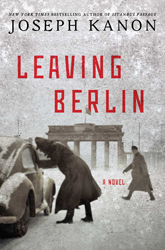 EC: Herb is different than Alex in that he is a Communist who is Jewish in name only. What is he supposed to represent?
EC: Herb is different than Alex in that he is a Communist who is Jewish in name only. What is he supposed to represent?
JK: He allowed me to discuss the Communist Party’s post war purges, which I moved up a year for the story. There is no question in Alex’s mind — and in mine — that these purges by Stalin had a level of anti-Semitism. Unlike Alex, Herb is a true believer and came willingly to Berlin to build the Socialist ideal. He gets swept up in one of those nets that put on show trials. I wanted to show how his wife became a pawn to save her husband. She became a spy and informant for the Stalinists. Because they were western Jews from New York they were seen as contaminated, untrustworthy, and not loyal.
EC: You discuss in Leaving Berlin how America made common cause with the Nazi scientists: “The Americans don’t care, as long as they’re not Communists.”
JK: I talk a bit how the United States employed the German scientists for expediency. This is shameful. We are talking about people who participated in war crimes and were given visas, while many Jews were turned away. Essentially what we decided is that these are very bad people unless they are useful to us, and then they are not so bad. What they did to the Jews and others is ignored.
EC: What would you like the readers to get out of the plot?
JK: An irresistible story. I hope readers are intrigued by the fact that Alex had to go back to Berlin and face the different elements of that society. The book is about the moral ambiguity of people who must tend to two sides, which will never come together.
Elise Cooper lives in Los Angeles and has written numerous national security articles supporting Israel. She writes book reviews and Q&A’s for many different outlets including the Military Press. She has had the pleasure to interview bestselling authors from many different genres.
Related Content:
- Nicholas Kulish: A Jew in a Plexiglas Box
- Arthur Allen: A Book and Its Translators
- Matthew Baigell: Social Concern and Left Politics in Jewish American Art
